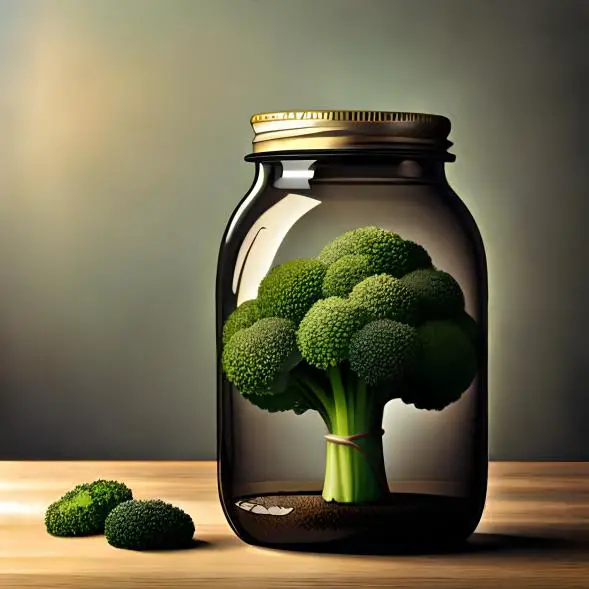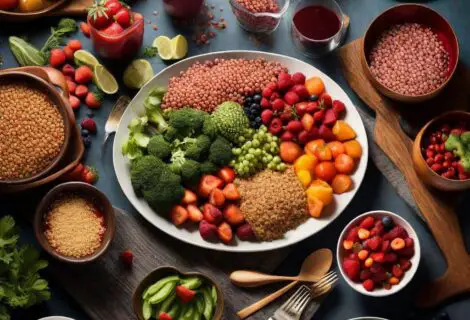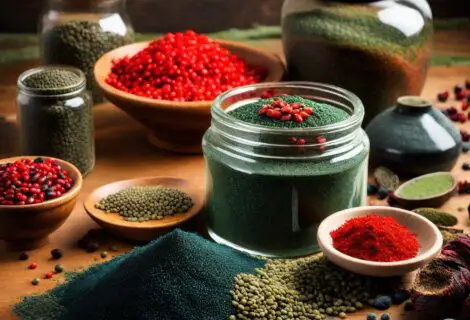Food as Medicine
[disclosure]
Introduction
Food has incredible healing powers. The old adage “you are what you eat” rings true now more than ever. In the last few decades, research has shown clear links between diet and disease. The food we put in our bodies impacts not just our weight and energy levels, but also our mood, gut health, risk for chronic illnesses, and longevity.
As Hippocrates said thousands of years ago, “Let food be thy medicine and medicine be thy food.” Diet can truly be one of our most powerful tools for preventing and managing disease. In this blog post, we’ll explore the medicinal properties of food and how to harness nutrition to optimize your health.
The Healing Properties of Fruits and Vegetables
Fruits and vegetables contain a treasure trove of vitamins, minerals, antioxidants, and phytochemicals that provide natural protection against disease.
Powerhouse Produce
Many fruits and veggies contain unique medicinal compounds. For example:
- Tomatoes are rich in lycopene, which protects against cancer.
- Citrus fruits contain vitamin C, which boosts immunity.
- Broccoli has sulforaphane, an antioxidant that guards against oxidative stress.
- Berries are packed with anthocyanins, flavonoids with anti-inflammatory effects.
Filling your plate with a rainbow of produce ensures you get a wide variety of disease fighting nutrients.
The Importance of Fruits and Vegetables in Cancer Prevention
Fiber for Detoxing
In addition to vitamins and antioxidants, fruits and vegetables are loaded with fiber. Fiber sweeps toxins out of the digestive tract and promotes regular bowel movements. This keeps you clean from the inside out.
Aim for at least 30 grams of fiber per day from produce and other whole foods. This will keep your digestive system humming along.
Anti-Inflammatory Fats
Inflammation is at the root of most modern illness. Diets high in omega-6 fats from processed oils promote inflammation, while omega-3 fats reduce it.
Focus on anti-inflammatory fats from sources like salmon, avocados, nuts, seeds, and olive oil. Limit processed vegetable oils like soybean, corn, sunflower, and canola oil.
The ratios of omegas in your diet impact the balance of inflammatory compounds in your body. Make omega-3s a regular part of your diet to calm inflammation and boost health.
How to Follow a Gluten-Free Diet: Tips and Meal Plan
Herbal Allies
Many common herbs and spices possess therapeutic properties. Here are some of the top medicinal herbs:
- Turmeric – This golden spice is valued for its anti-inflammatory and antioxidant curcumin. Curcumin has been shown to combat chronic inflammation, relieve joint and muscle pain, and support brain, heart, and liver health.
- Ginger – Ginger is a natural remedy for nausea, upset stomach, and other digestive woes. It also contains anti-inflammatory compounds called gingerols.
- Garlic – Garlic has antibiotic, antiviral, and antifungal properties. It supports immune function and heart health.
- Cinnamon – This aromatic spice stabilizes blood sugar, reduces systemic inflammation, and fights bacteria, viruses, and fungi.
- Oregano – Oregano has a high antioxidant content. It exhibits antimicrobial activity against common pathogens and may help fight off colds, flus, and food poisoning.
Sprinkle these medicinal herbs and spices generously onto your foods. They add flavor and provide natural therapy for whole body health.
Eating Spinach Can Boost Your Health and Energy Levels
The Mind Gut Connection
Your gastrointestinal system doesn’t just digest food. It also contains trillions of microbes that influence everything from your immune system to your brain function.
Feeding your microbiome whole, fiber rich plant foods promote the growth of beneficial bugs that create a strong gut brain axis. On the other hand, sugar, processed carbs, emulsifiers, and artificial additives disrupt gut health and promote inflammation, setting the stage for disease.
Prebiotic Powerhouses
Prebiotic foods provide non digestible fibers that act as fertilizer for healthy gut flora. They include:
- Apples, bananas, berries
- Onions, garlic, leeks
- Asparagus, artichokes
- Oats, barley
- Legumes
- Greens like spinach, kale, lettuce
Fill your diet with prebiotic foods to nourish a robust, diverse microbiome for whole body benefits.
The Top 7 Benefits of Apple Cider Vinegar
The Takeaway
Diet provides sustenance, but it can also prevent and treat illness. Nutrient dense whole foods heal from the inside out. A diet rich in plants, healthy fats, herbs, and prebiotics optimizes wellbeing by reducing inflammation, supplying essential nutrients, and supporting detoxification and gut health.
Harness food’s natural medicinal properties by filling your plate with more vegetables, fruits, herbs, spices, nuts, seeds, and omega-3s. Let wholesome, minimally processed foods be the foundation of your eating plan. Food truly can be medicine when chosen wisely.
Ultra-Processed Food Addiction
Conclusion
Food’s ability to prevent and treat disease is remarkable. But we have to learn to use nutrition therapeutically through a balanced, whole foods diet.
What changes will you make to use food as medicine? Try adding more medicinal fruits, veggies, herbs and spices to your routine. Add your favorite medicinal recipes in the comments below. We’d love to hear your experiences with healing foods.
FAQ
What foods have medicinal properties?
Some of the top foods with medicinal value include leafy greens, cruciferous vegetables, berries, citrus fruits, fatty fish, turmeric, ginger, garlic, oregano, cinnamon, prebiotic fibers, kefir, kombucha, nuts, seeds, avocados, extra virgin olive oil, and dark chocolate.
What meals are good for healing the body?
Some examples of medicinal meals include:
- A big leafy green salad with salmon, avocado, berries, nuts, olive oil lemon dressing. This provides antioxidants, omega-3s, and fiber.
- Vegetable coconut curry made with turmeric, ginger, garlic, onions, and spinach over cauliflower rice. The herbs, spices, veggies and healthy fats have anti-inflammatory effects.
- Bone broth soup with turmeric, shiitake mushrooms, celery, carrots, onions and spinach. The broth soothes the gut while the veggies provide nutrients.
How does food impact inflammation?
Refined carbs, sugar, processed oils, emulsifiers, and artificial additives promote inflammation. Fruits, vegetables, herbs, spices, omega-3s and probiotics have anti-inflammatory effects and help reduce inflammation when eaten regularly.
What is the best diet for gut health?
A diet rich in prebiotic fiber from fruits, vegetables, nuts, seeds, and whole grains nourishes beneficial gut bacteria. Fermented foods like kefir, yogurt, sauerkraut, kimchi, kombucha, and pickles also support microbiome diversity. Limit sugar and processed foods.
How important is diet in chronic disease prevention?
Diet plays a huge role in chronic disease risk and prevention. Diets high in processed foods, refined carbs, unhealthy fats, and sugars increase risk for obesity, heart disease, diabetes, and certain cancers. Eating nutrient dense whole foods reduces disease risk by supplying protective compounds and promoting healthy inflammation levels.








